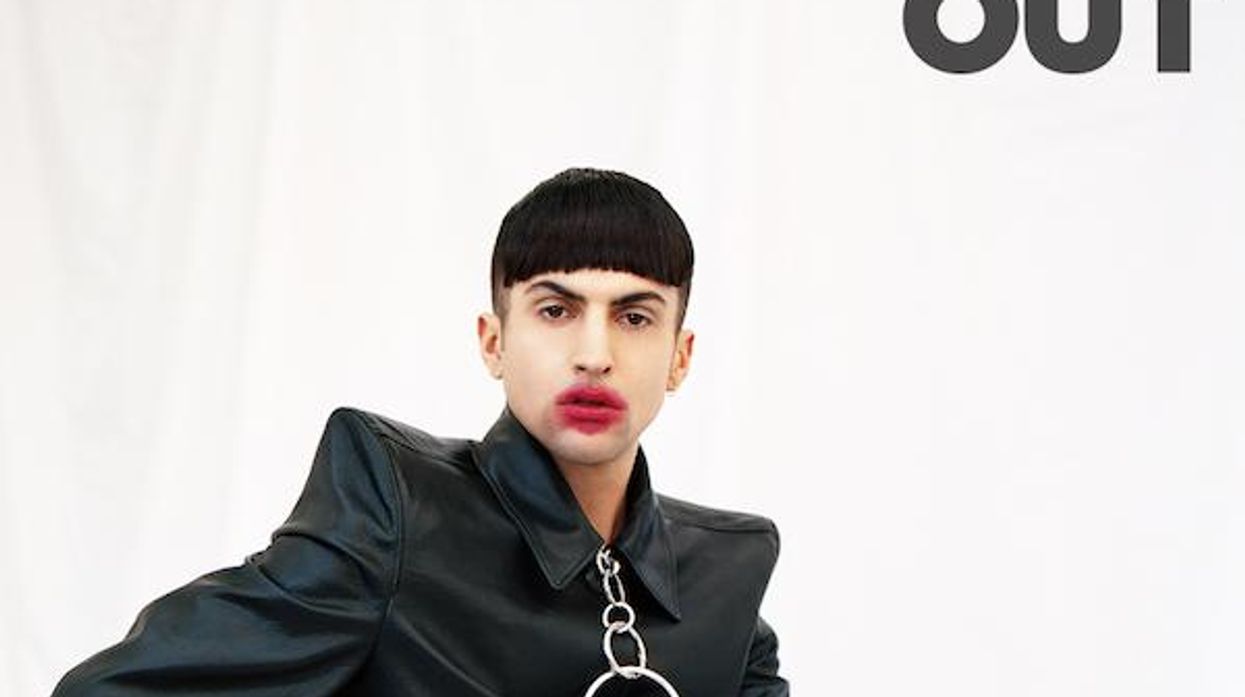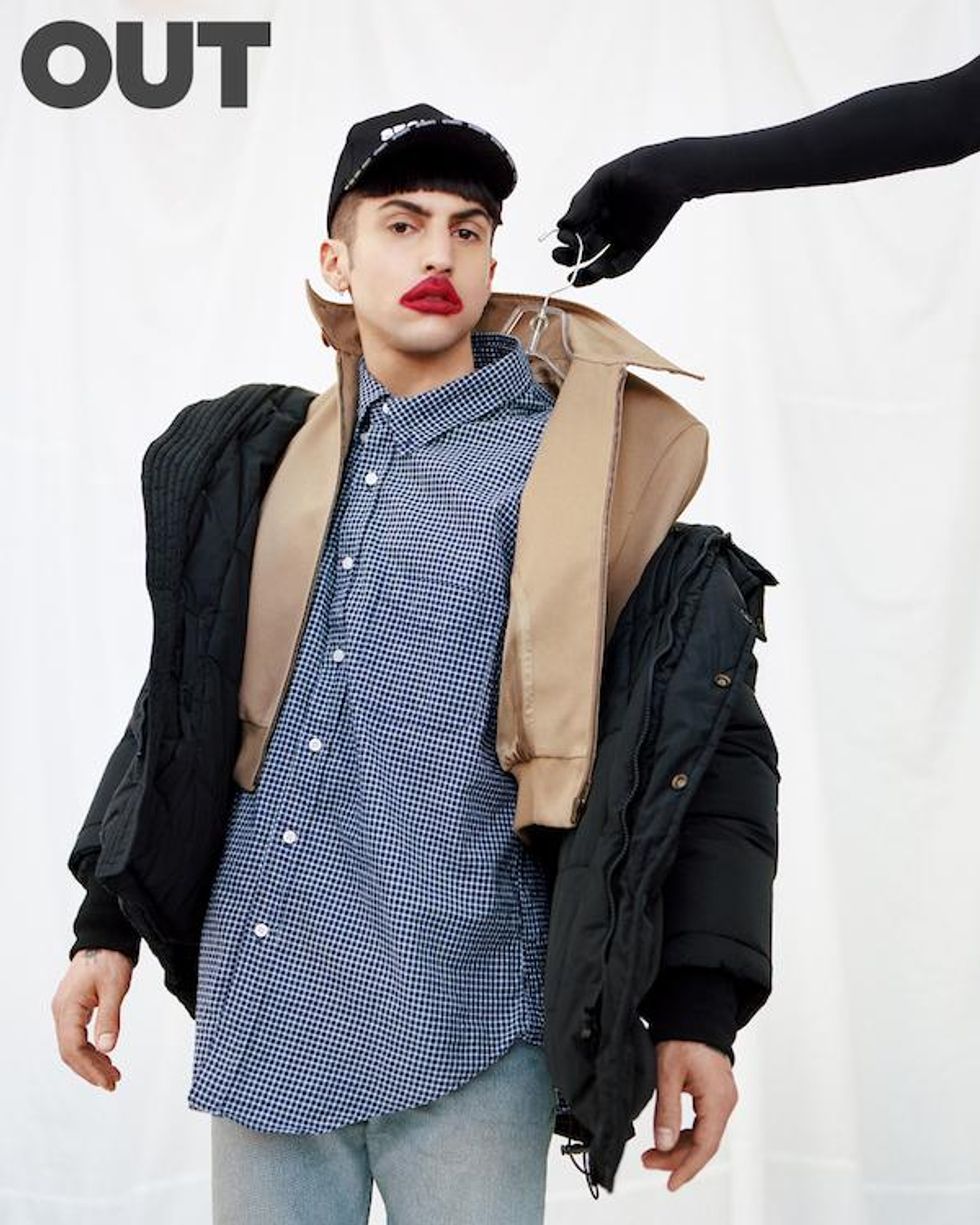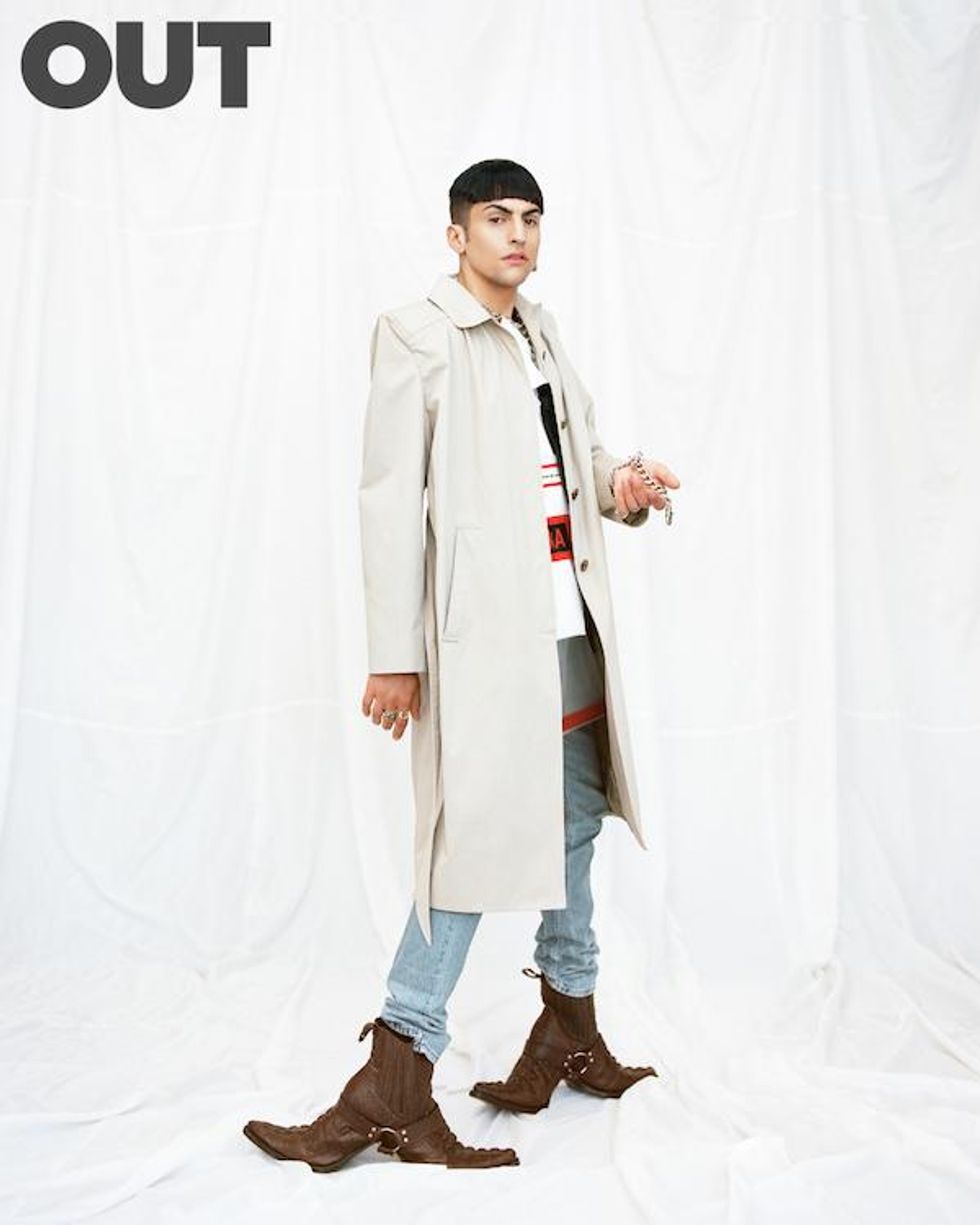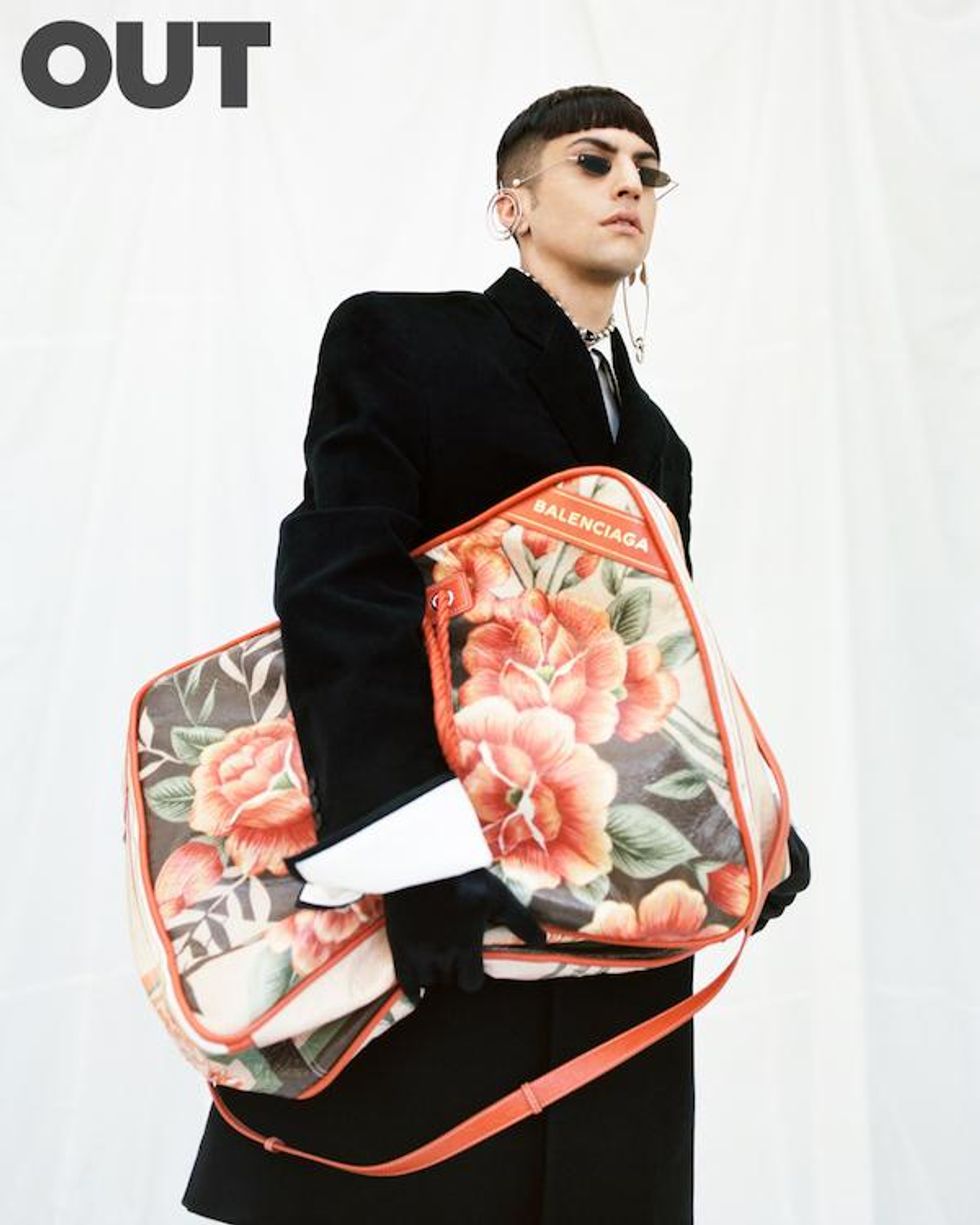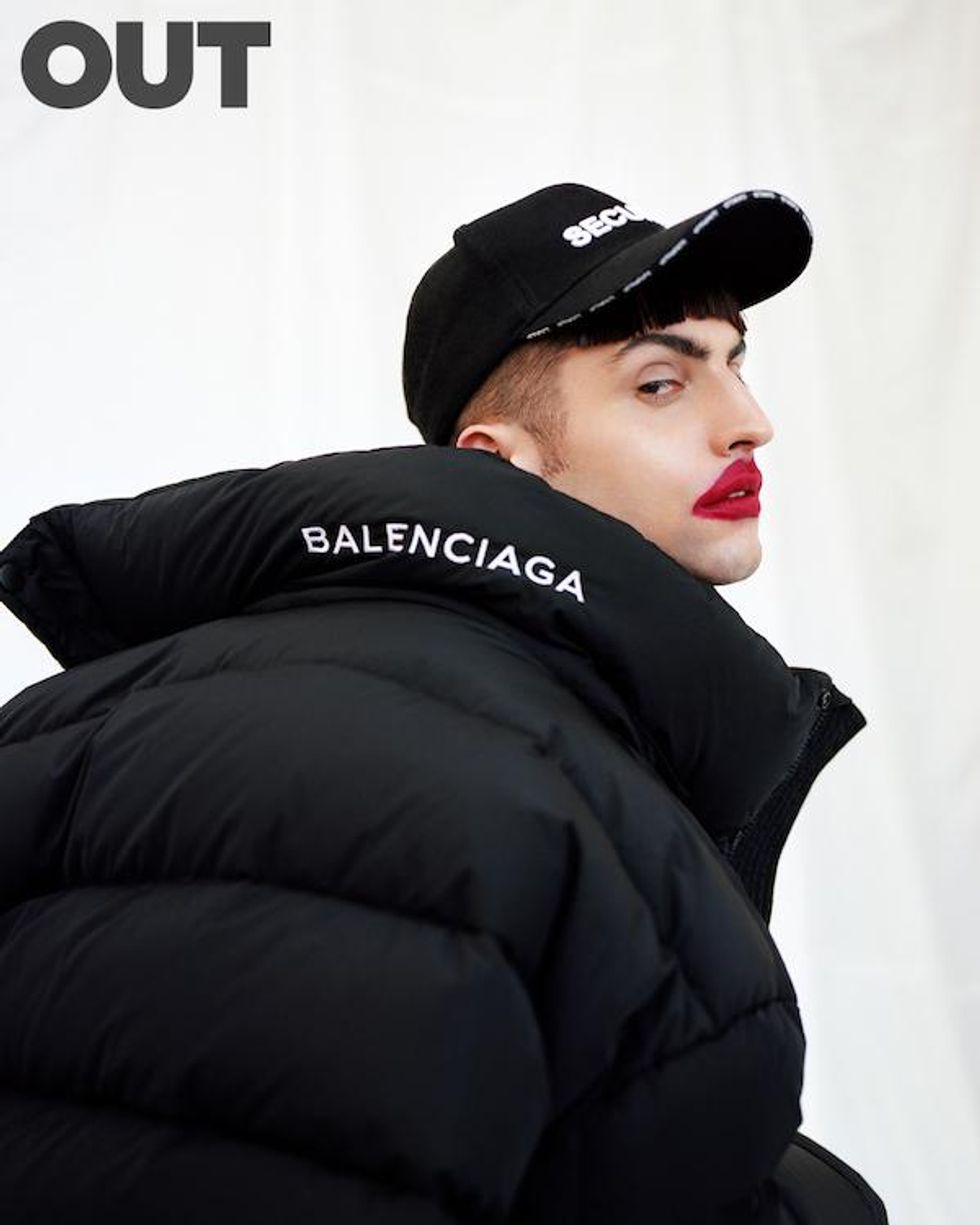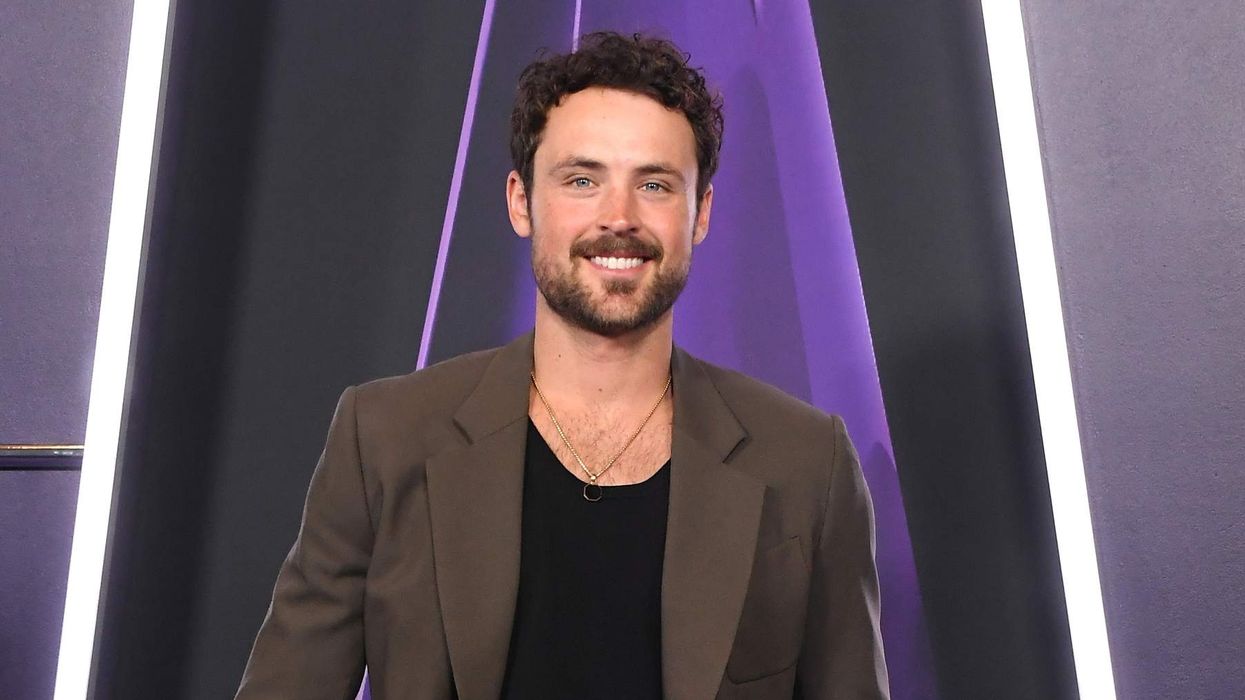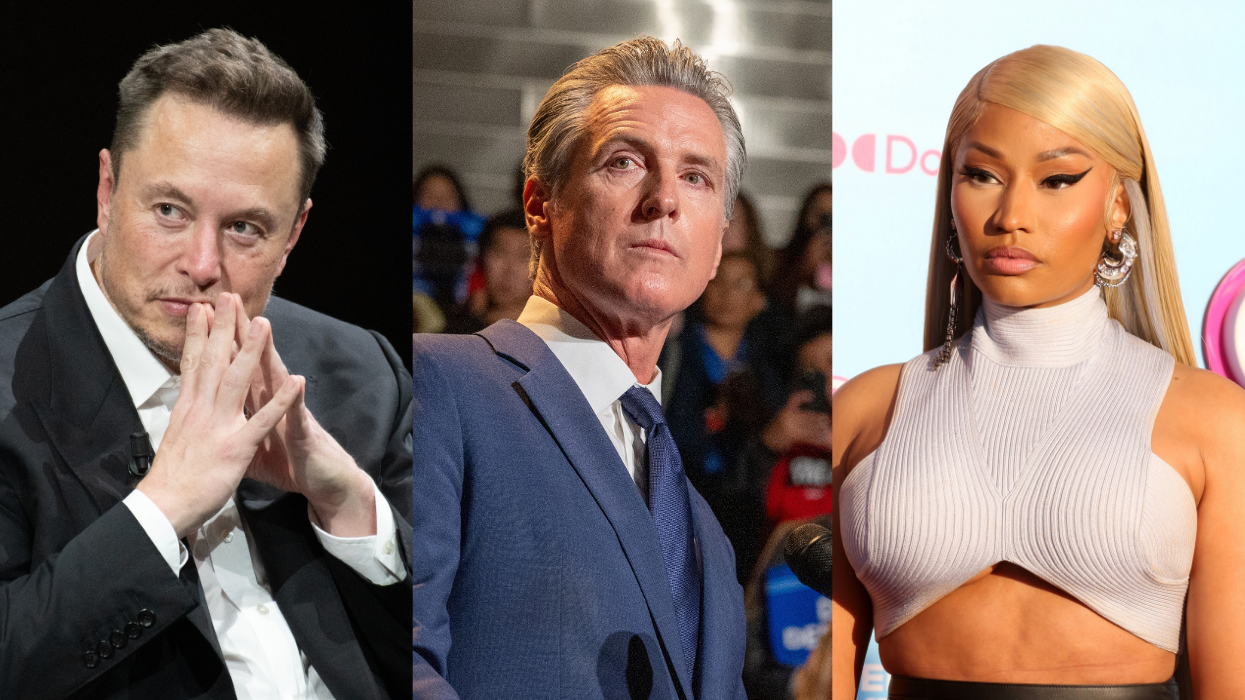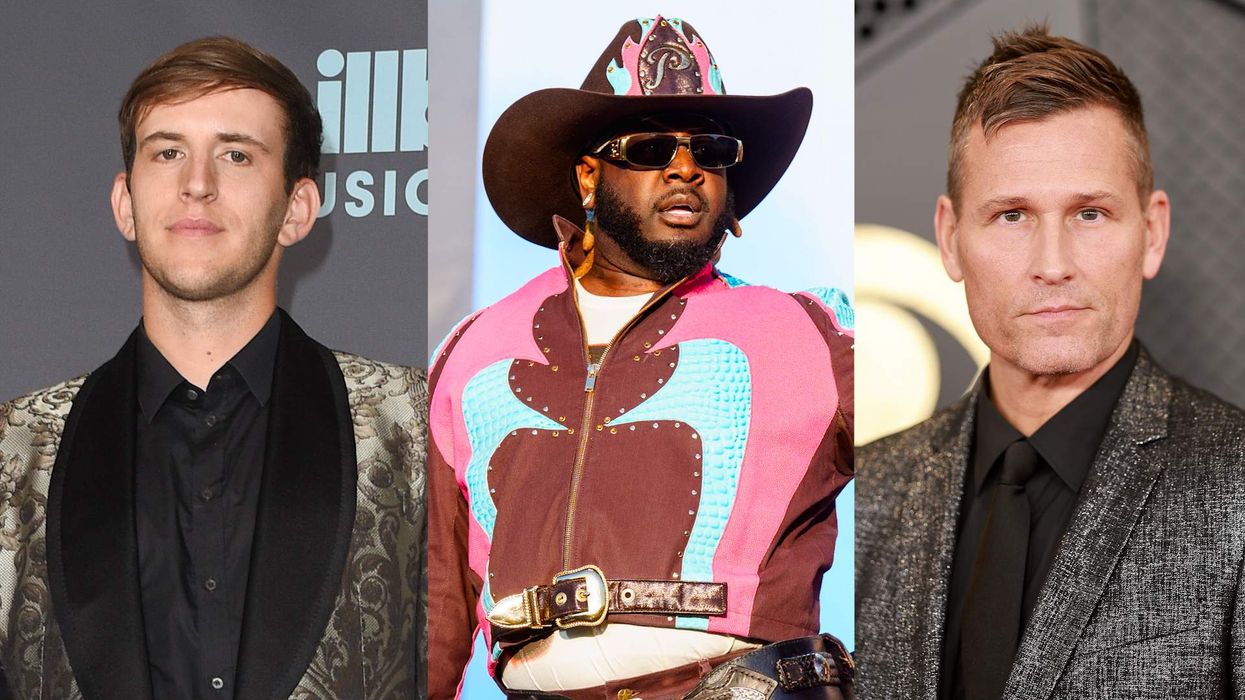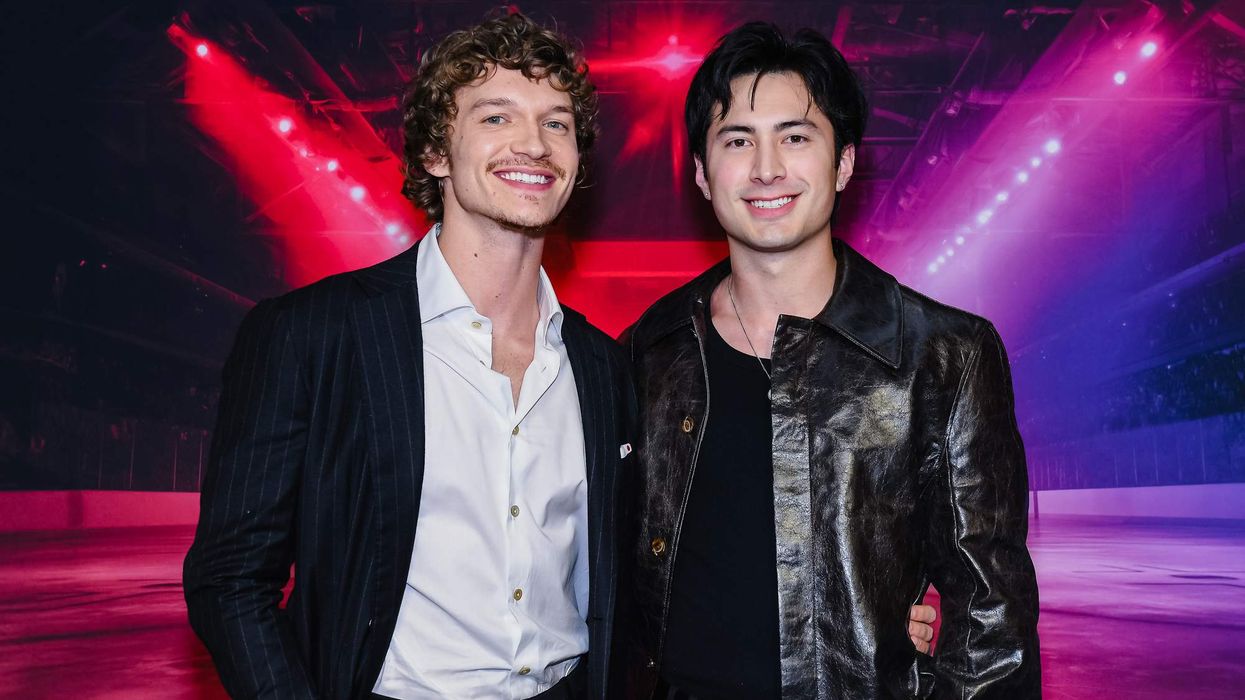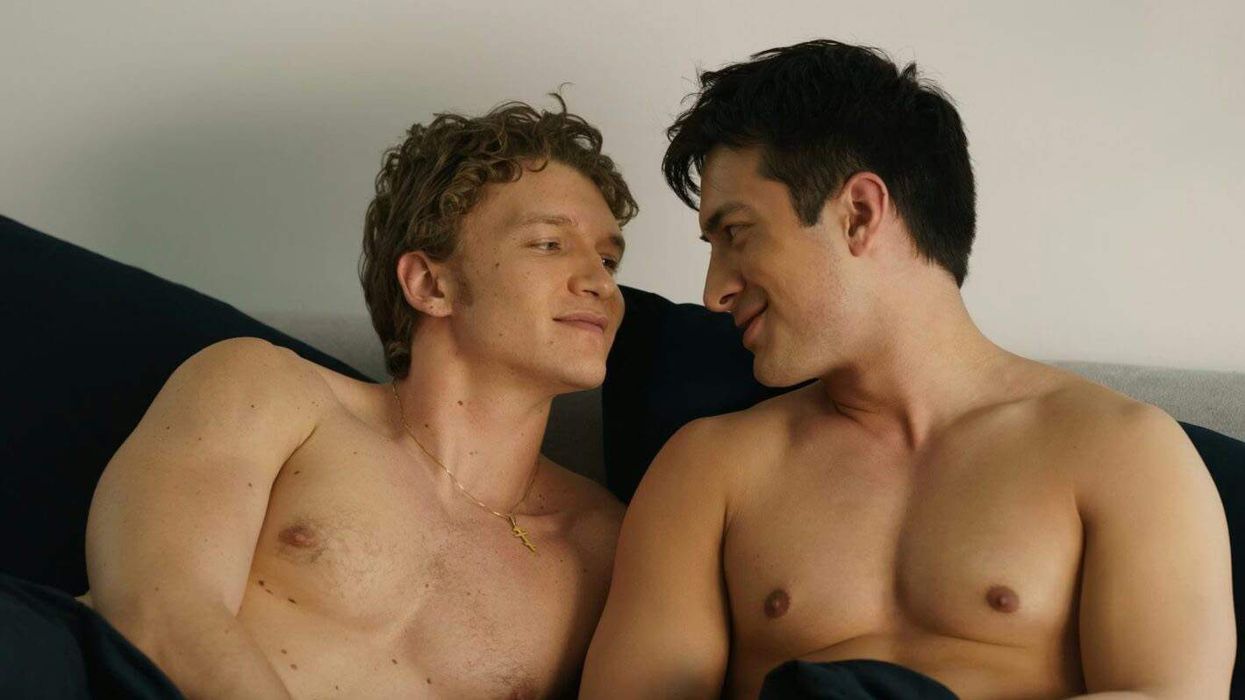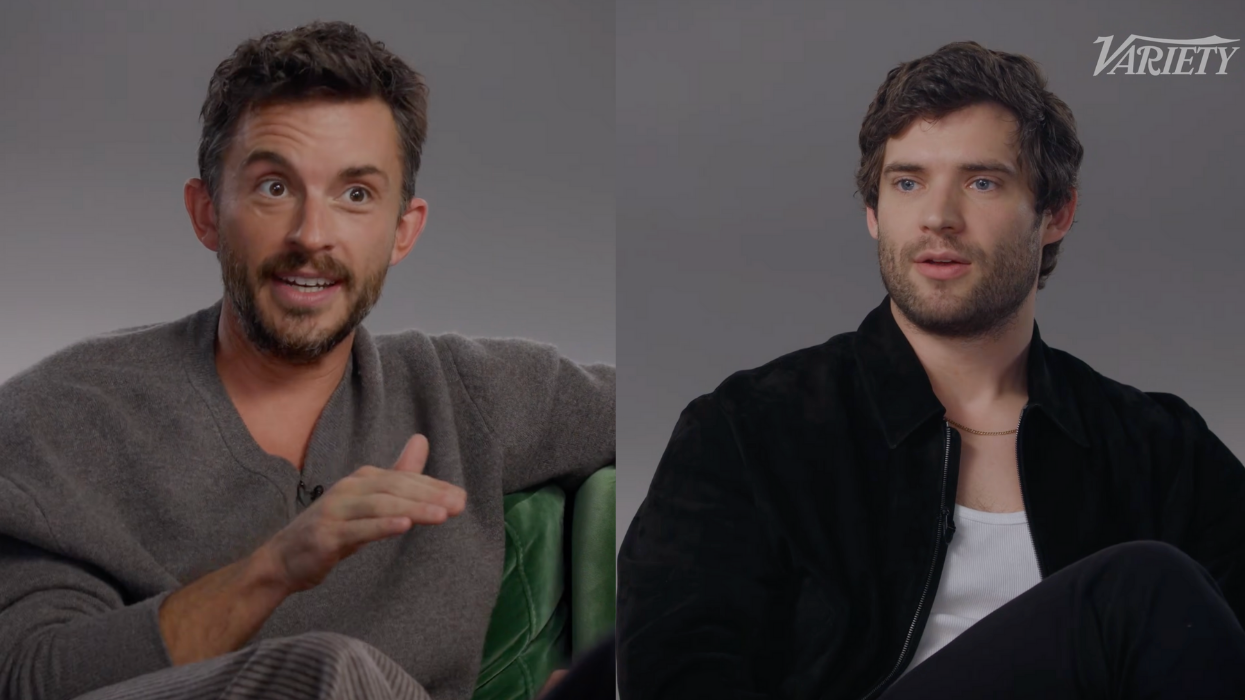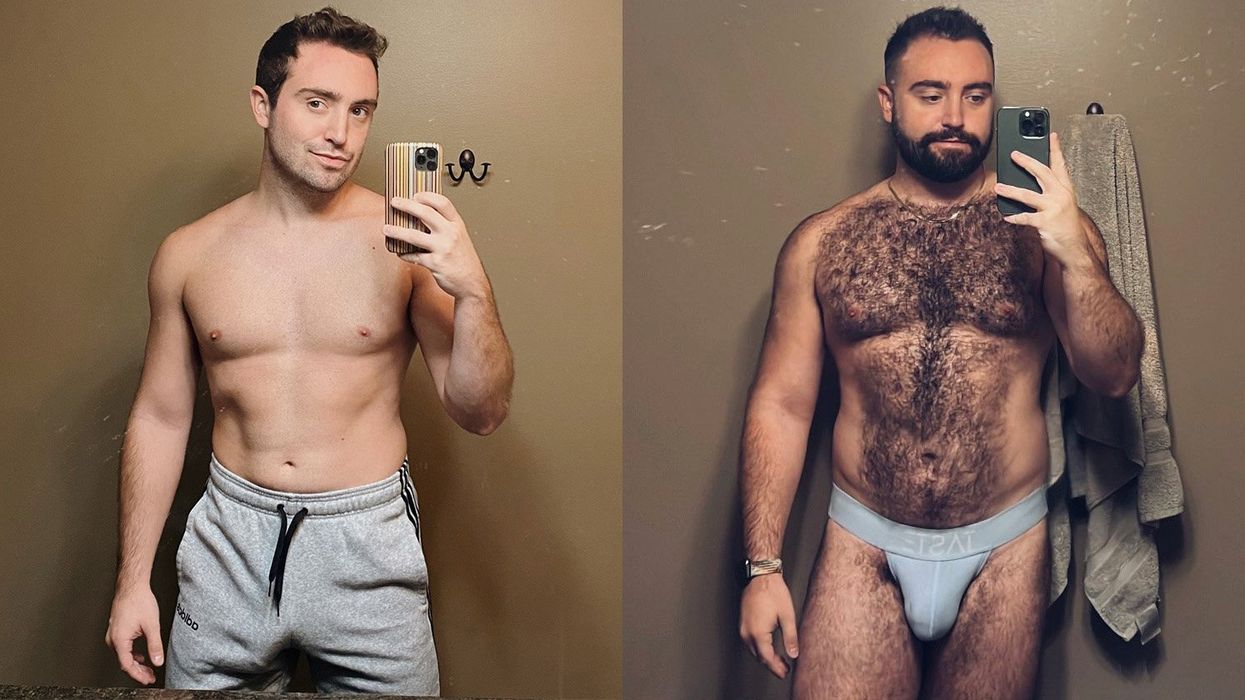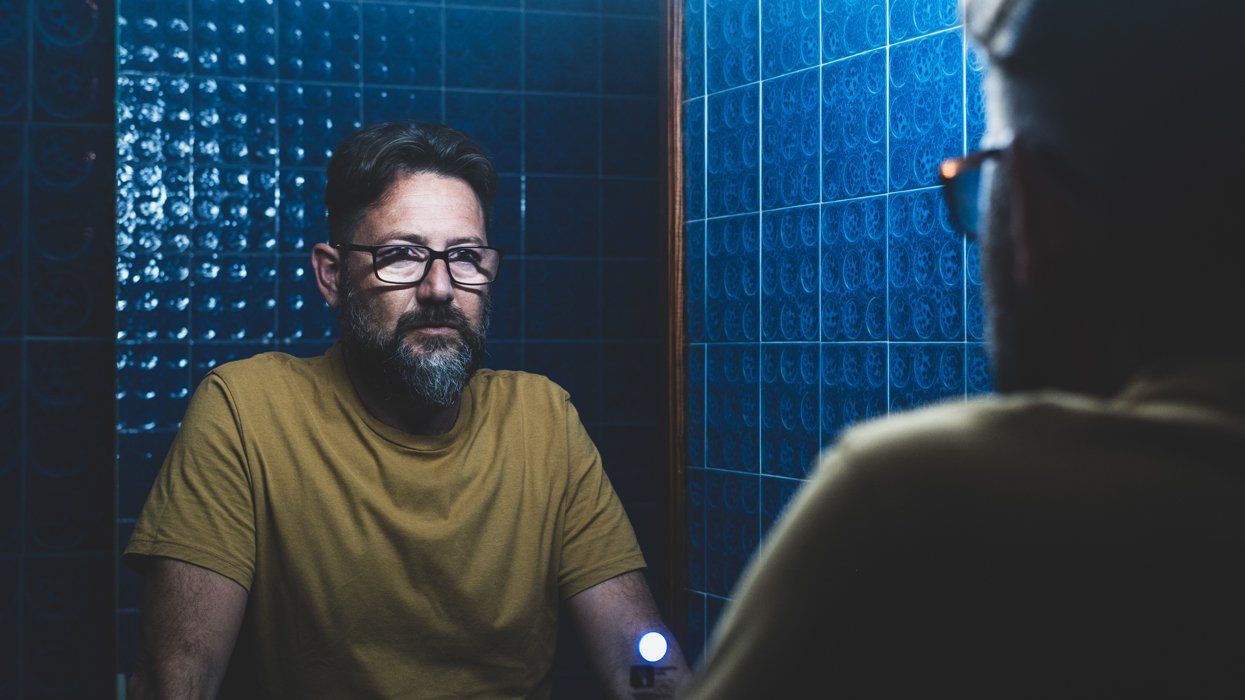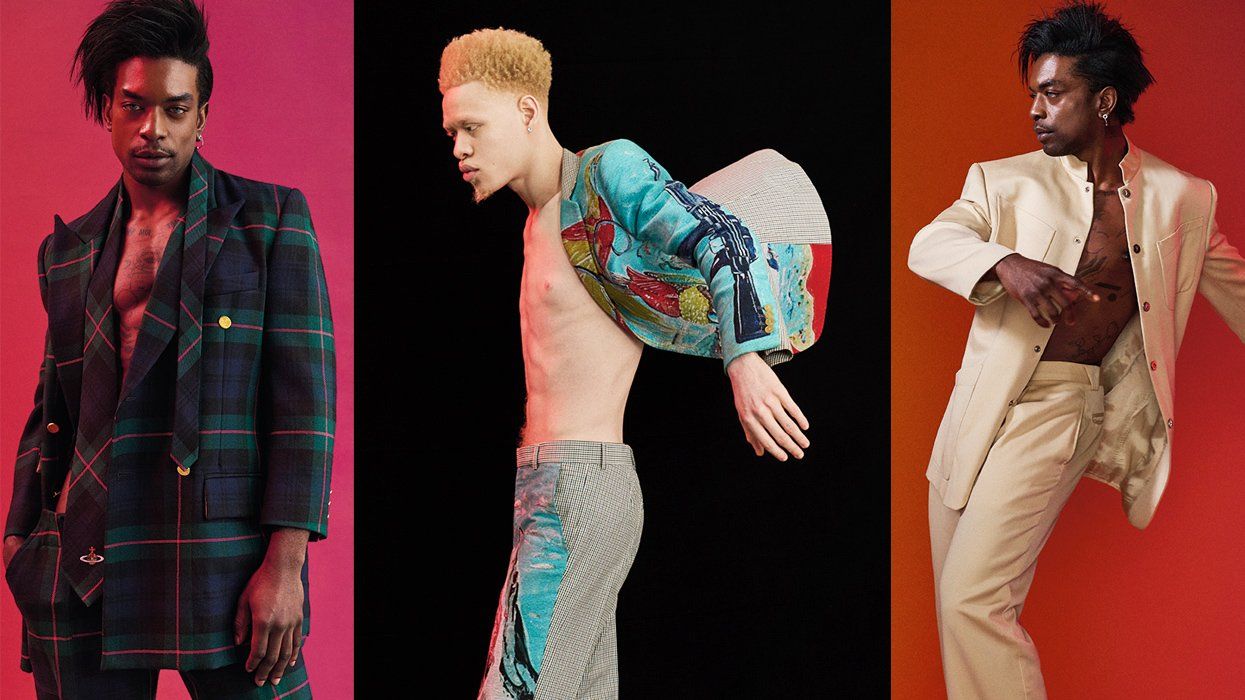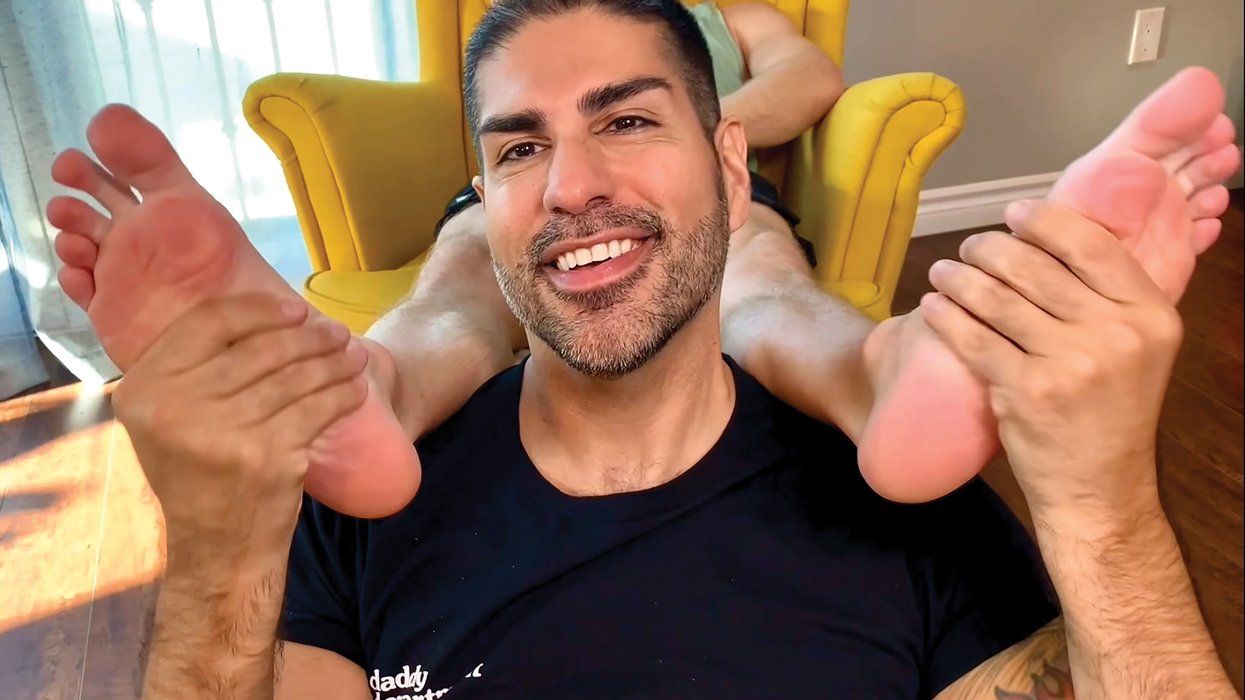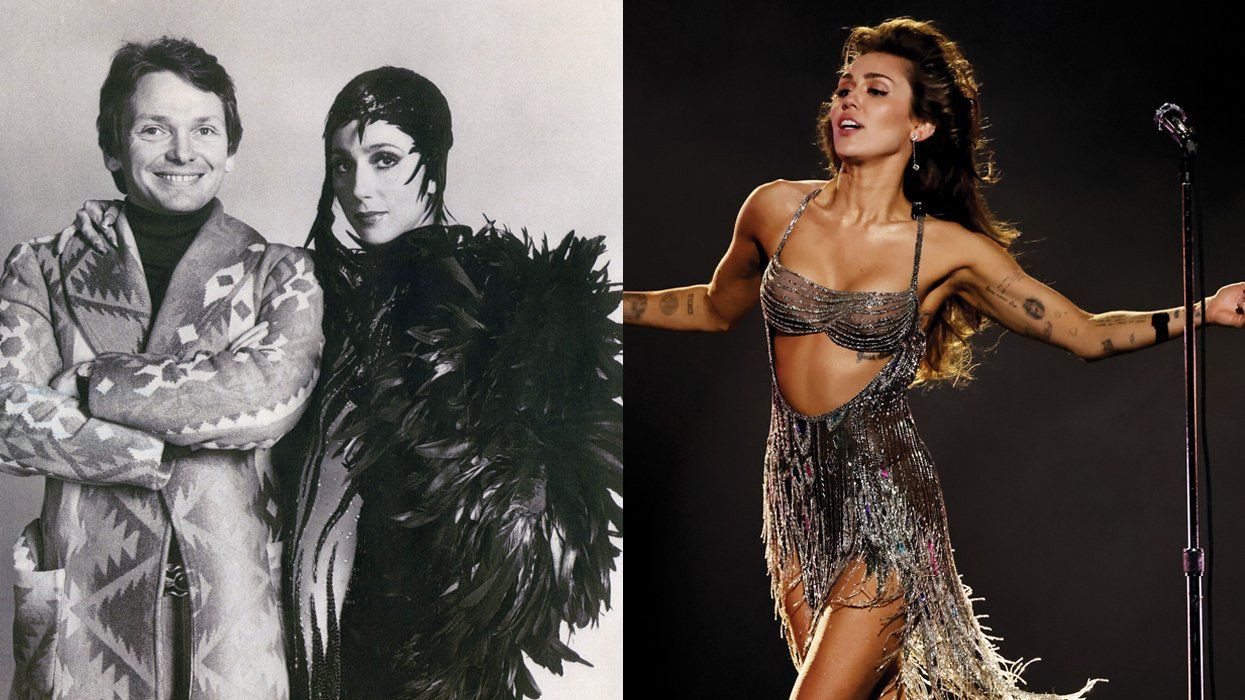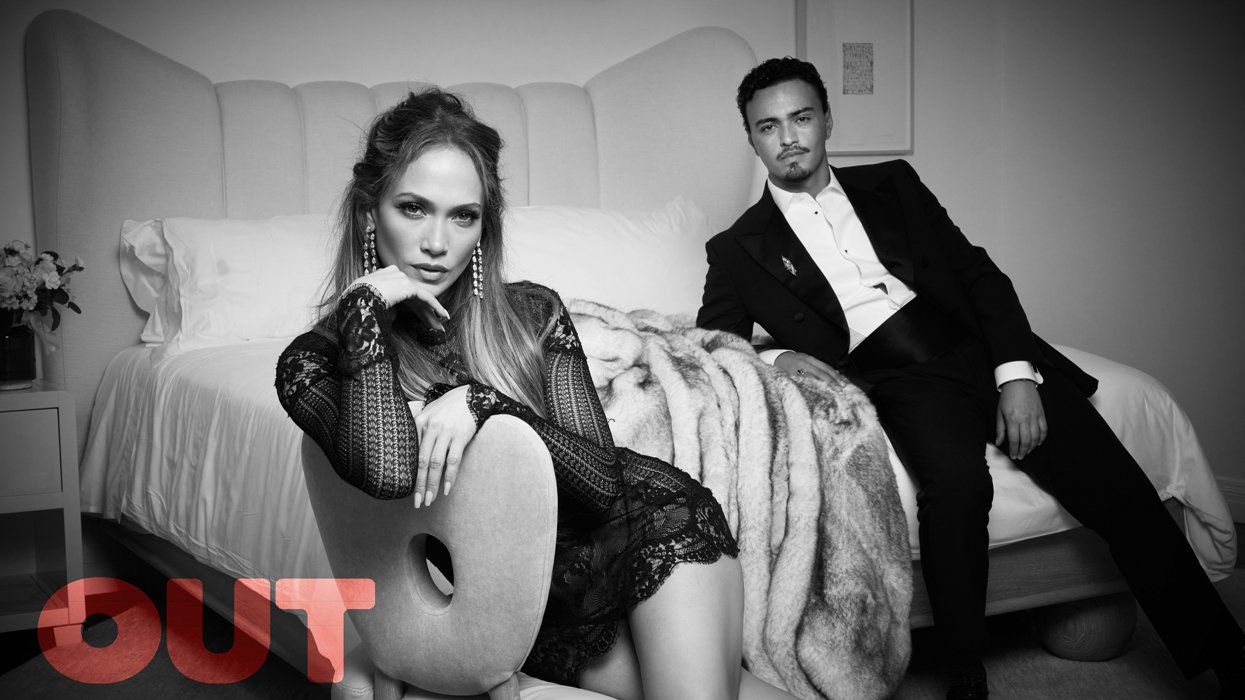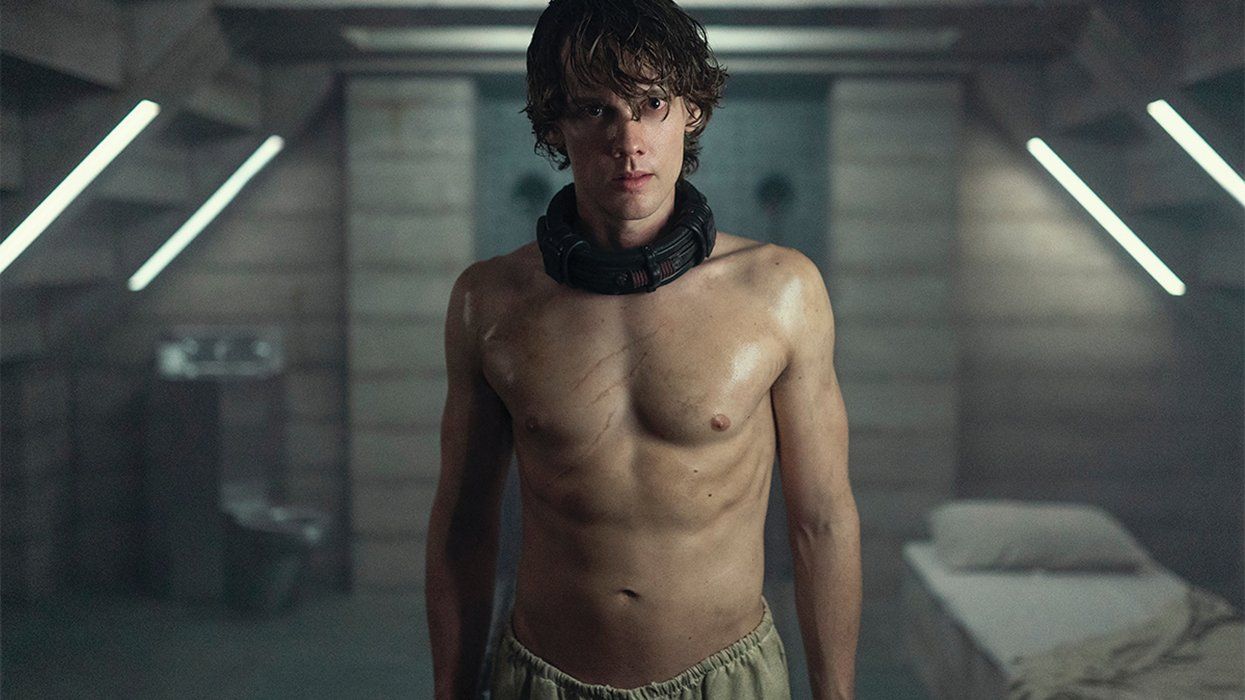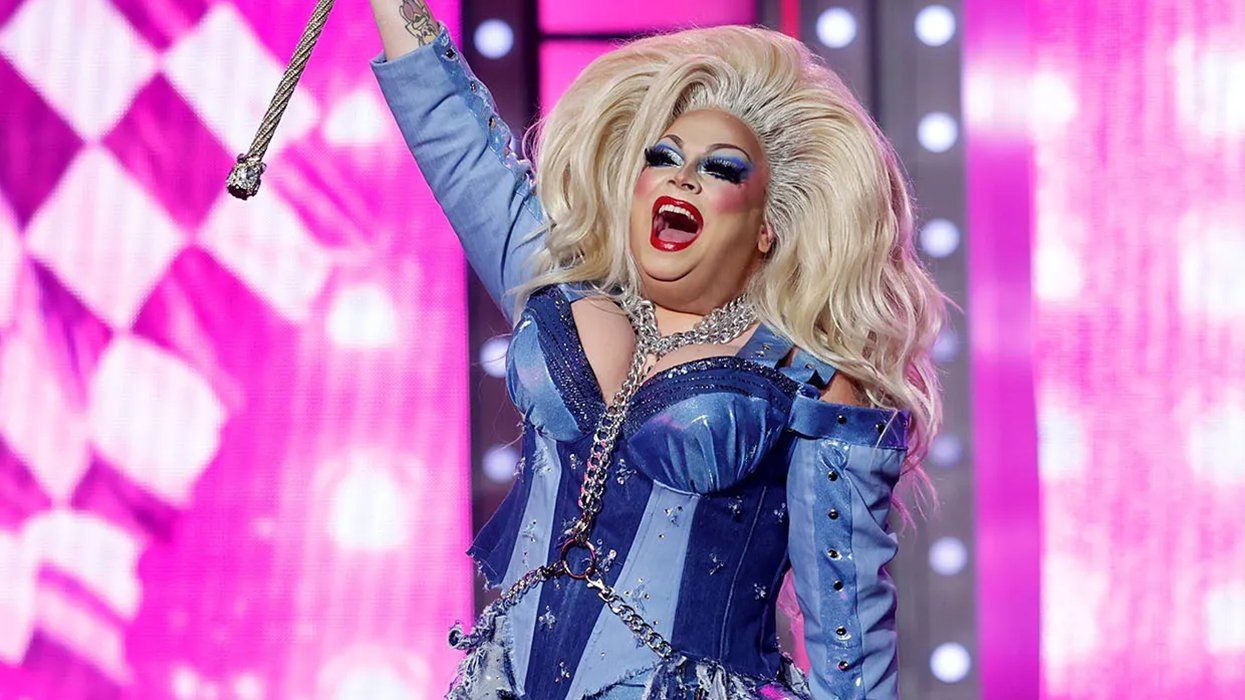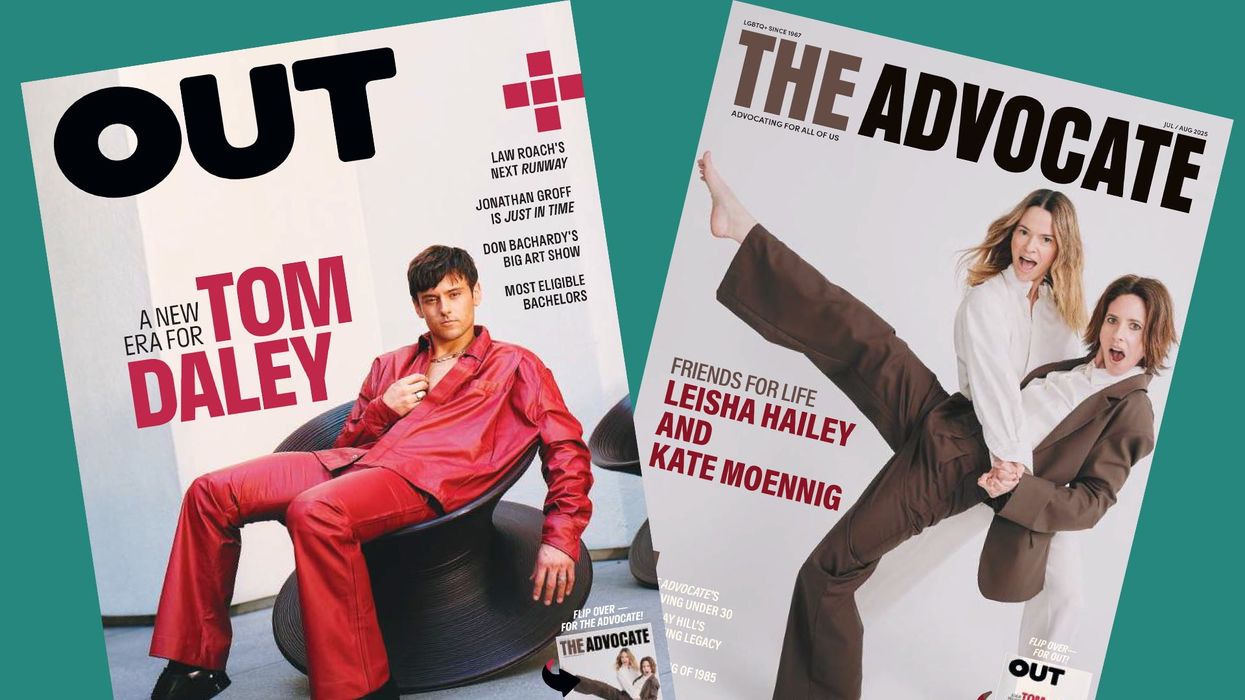When you're as globally recognized and visibly queer as singer Mitch Grassi, your mere existence is an active form of political protest.
As a member of the Grammy Award-winning acapella supergroup, Pentatonix, Grassi's career hasn't ever been about provocation. But considering their multiplatinum-selling success, Grassi's openly gay identity has impacted all corners of the world--even the most intolerant, homophobic ones.
Related | Gallery: Pentatonix Singer Mitch Grassi
Pentatonix's universal appeal lies, not only in their irresistible five-part harmonies, but in their song choice, as well. The vocal group's new EP, PTX Vol. IV - Classics, features seven of the most iconic tracks in pop music history. From Queen's "Bohemian Rhapsody" to Judy Garland's "Over The Rainbow," Pentatonix recorded with the intent of bringing people together.
In a divisive age, when hate is more readily propagandized than love, Grassi's unique ability to build community and transcend cultures has made him an unlikely radical in contemporary pop music.
OUT caught up with Grassi to discuss the duality of his music career, side project Superfruit with Scott Hoying and obsession with all things Maison Margiela.
OUT: I love these photos because they show such a different side of you than the one often portrayed through Pentatonix.
Mitch Grassi: Yeah, it's definitely two very different brands, which is funny.
Is that something you're comfortable with?
I think I wouldn't be comfortable with it if I didn't have any sort of outlet to--I don't want to say "express my true self," because Pentatonix is just a different side of me--but at the end of the day, self expression, especially through fashion is so important to me. I'm becoming known for doing outlandish things when it comes to fashion. So if I had to be totally someone else--be totally G-Rated and could never step outside any little G-Rated box, I'd go crazy [laughs].
How does Pentatonix fulfill a different side of you?
It's a weird duality I have, where I have this totally avant garde interest in art, fashion and music, but at the same time I'm well aware of the industry--the pop world and pop culture. I totally get it. I know what the general public likes to see, I know what they like to listen to and at the end of the day, Pentatonix is a thriving business and, more importantly, makes many people happy.
The secret is getting inside the mainstream and fucking everything up from within.
100 percent. It's all about creating your own niche and doing something nobody else has done before.
Being visibly queer and in such a mainstream position of power is radical in its own right, wouldn't you agree?
I would absolutely say so, yeah.
Pentatonix reaches so many different kinds of people, so you're really opening the minds of listeners who'd otherwise never encounter a LGBTQ person.
The Pentatonix demographic is very different across the board, but one that's very common is midwesterners and Christians--they love our music and I've gotten people saying, parents especially, "You guys helped me accept my gay son, my gay daughter," and I think that's really cool. It's a weird way to ease people into opening their minds a bit, because we're not doing anything crazy or outlandish with Pentatonix, but by simply being our true selves, we're opening people's eyes a bit.
Tell me about the process for creating your new EP of classic covers.
This one was probably our easiest EP to date because we're doing classic songs from a bunch of different decades, but songs that we know people will always love--timeless songs and songs we really love, too. I feel like what Pentatonix does best is cover songs. That's always been a huge part of our brand, so it was fun.
You released Queen's "Bohemian Rhapsody" as the lead single. Why?
Our fans have always requested that we do it, and we do tease it a bit in our "Evolution of Music," but it's widely recognized as being one of the most vocally challenging songs out there. I think people were really curious to hear our take on it--if we'd do the instrumental parts and who'd get what solo.
Freddie Mercury is a major queer icon. Are there any other LGBTQ icons from the past that you look up to?
I always think of Lady Gaga. When she came out as someone who fits within the queer umbrella, she came out in a big way. It was so incredible and inspiring to me as a 17-year-old in suburban Arlington, Texas, because I was so excited that somebody was standing up for the outcasts at the time. Her unabashed sense of self expression was so incredible and inspiring to me. That was something I'd always yearned to do because I had always been the weird kid--I always had something, I always wanted to make a point and I always wanted to be an individual.
Have you heard from kids in suburbs today about how you've inspired them in the same way Gaga inspired you?
All the time. I wouldn't call myself an activist, but I'm definitely vocal about things that I believe are right. It's nice when people tweet at me or comment saying, "Thank you so much for standing up or being an advocate because it really helped me find myself and be a little less afraid to be true to myself, even if I don't live in a community where people don't totally accept me." That's really special for me because I was always looking for that when I was their age, as well.
What're the key differences between Pentatonix and your side project, Superfruit, with Scott Hoying?
It's very slight, but Superfruit is a little more raunchy [laughs]. It's a little less G-Rated, but the funny thing is there isn't a difference between Pentatonix and Superfruit as far as who we are, because Scott and I are being ourselves in both situations. With Superfruit, it's a little more gay-friendly and a lot more open, more sexual, more liberated.
You're working on new Superfruit music with Scott, right now. What's the process like?
We're working toward an EP, actually. I'm hoping to get it out really soon--before summer. I think we're getting some really great results because we're just throwing ourselves into the work. Not that Pentatonix is limiting at all, but it's certainly a lot easier to explore more stylistic avenues and genres with ease through Superfruit. We've worked with Danny Harle, from PC Music, and we've worked with Caroline Polachek from Chairlift. We're also working with some songwriting teams that work heavily in the pop industry, like Noise Club.
Do you envision yourself ever going solo?
Absolutely. Now it's just a matter of figuring out what I want to do as an artist. I'm on this weird trajectory where I'm learning my own creative process through working with other people, and I think ultimately in a couple years I'm really going to know with certainty what my artistic direction is. For now, I'm enjoying everything I'm doing with Superfruit and Pentatonix. There's no rush--I don't want to rush it.
Let's talk about fashion--you've been developing such a strong sense of style, especially within the past year. What inspires you?
It's very inspired by late '80s, early '90s. Right now I'm on this vintage Margiela kick, where I'm going through all the archives, reading books about it and looking at his collections. I feel like he's having this resurgence in fashion because everybody's inspired by how he rocked the fashion world, indirectly and directly. That's why I'm such a fan of Demna Gvasalia, the creative director of Balenciaga and Vetements, because he's taking these spooky silhouettes and drawing a lot of influence from Margiela and Parisian women. I'd love to emulate that.
Do you think fashion can affect the world politically?
Yeah, specially the gender play, which is something I try to do tastefully. I think it's cool to teeter on that edge a bit because it makes people think a bit more. It's not totally shocking to where they despise it, but it's certainly a statement saying, "I don't have to be locked into one specific style." For my own personal version of self expression, I can't dress incredibly masculine--it just doesn't feel right.
Have you always had the confidence to dress the way you do now?
No, I wouldn't say I've always had it. I've always wanted to have it, but I took baby steps and then a giant leap, and now I feel like I can pretty much do anything when it comes to style and fashion. But I don't necessarily want to because I like to keep it tasteful and I want people to recognize I have a good eye. I don't just wear things to show off, although I feel like that's an added bonus.
Photography: Mat+Kat
Styling: Kurt Johnson
Hair: Evanie Frausto
Make-up: Yuui Vision
Photography Assistant: Lauren Stocker
Styling Assistant: Alex Arauz


